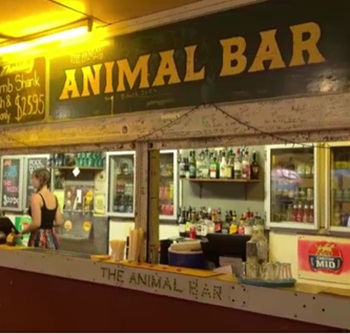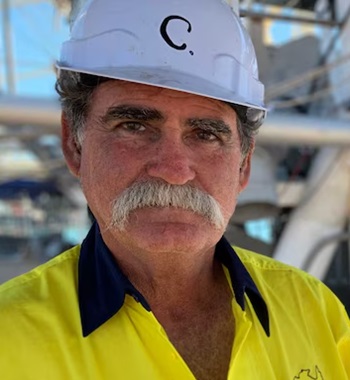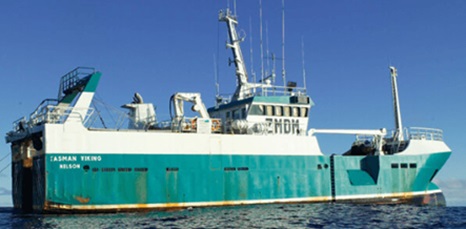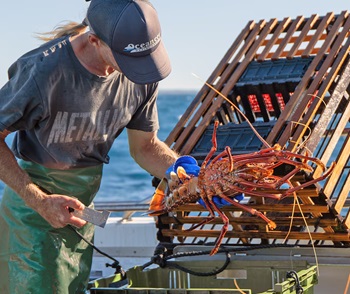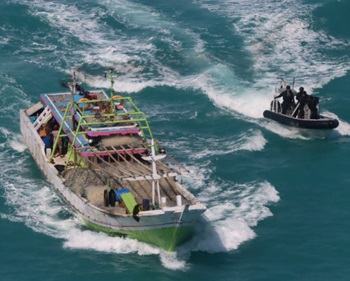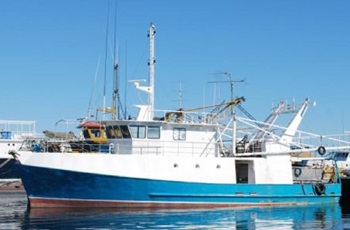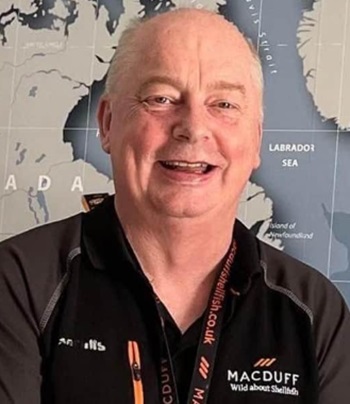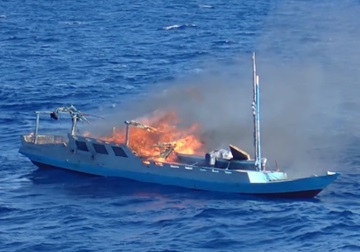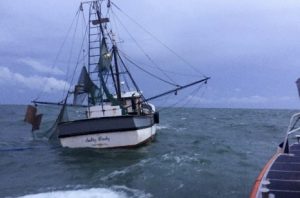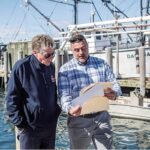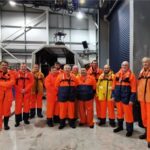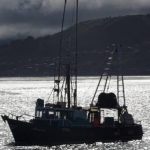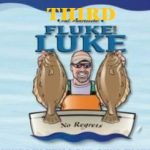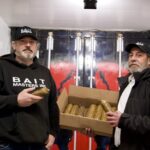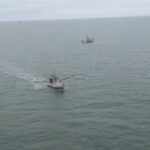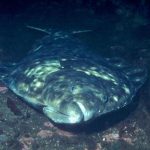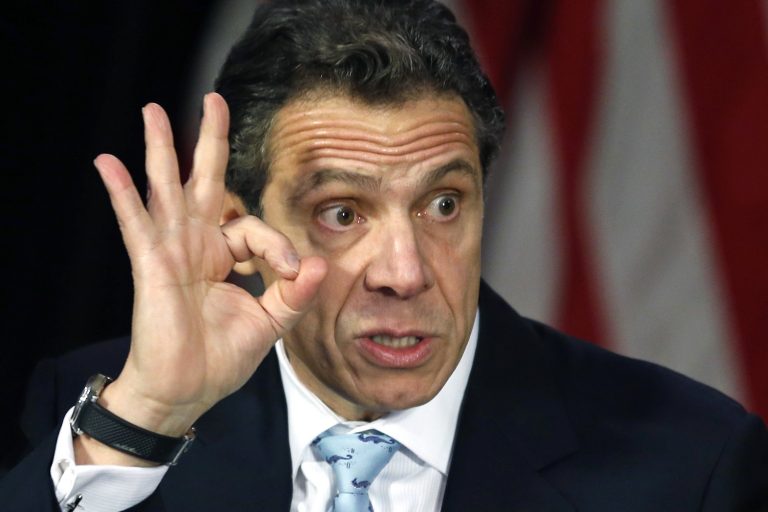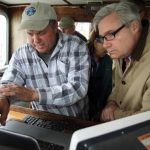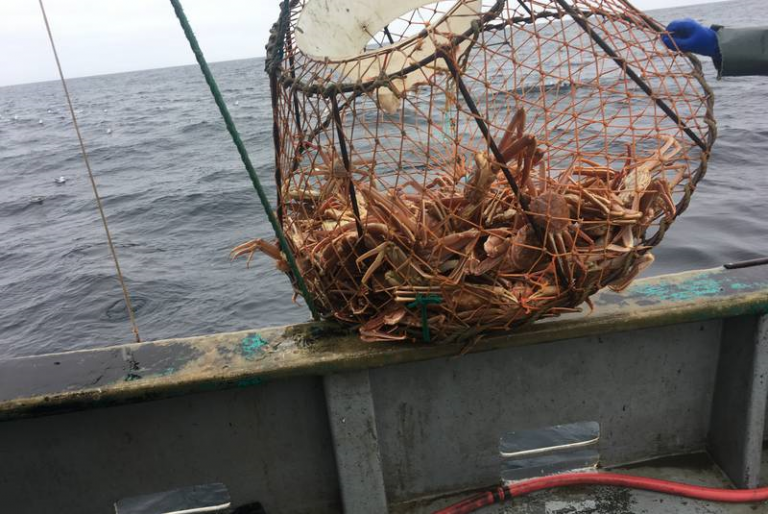Tag Archives: Australia
The offshore wind debate could influence this federal election and it’s already an ‘absolute blood-fest’

“Get out of our town, Albo!” the man yelled. “We don’t want your wind farms!”
The Illawarra, on the NSW south coast, can be hostile territory for Australian politicians. In 1939, Robert Menzies was booed by thousands of placard-waving locals as police escorted him down the Bulli Pass to meet striking waterside workers in Wollongong. Fast forward to 2025 and it was Anthony Albanese’s turn to feel the heat down near the steelworks. During a February press conference announcing his new candidate for Whitlam, he copped a gobful from a man dressed in a tan shirt and black shorts. “Get out of our town, Albo!” the man yelled. “We don’t want your wind farms!” That protester was financial adviser Alex O’Brien, who is not just another local resident. Mr. O’Brien is, in fact, president of a not-for-profit association called Responsible Future (Illawarra Chapter) or RFI, whose purpose is to tank Labor’s proposed offshore wind project in the Illawarra. more, >>CLICK TO READ<< 10:53
China-Australia Relations: Beijing resumes imports of Australian lobster after 4-year ban
 Australian lobsters are heading to China once again, after a 4-year absence. The industry says the removal of a trade ban by China late last year has opened the door to its biggest and most profitable export destination, just in time for the Chinese New Year. The haul on this day was a good one for Basil Lenzo and his crew. About 400 kilos of western rock lobsters. What’s even more significant for the 3rd generation fisher is that much of this catch will end up in China. In 2019, about 95% of Australia’s western rock lobsters were sent to China, which was the industry’s most profitable export market worth more than $700 million. The next year, China imposed tariffs and trade blockages on a number of Australian exports including lobsters. Video, more, >>CLICK TO READ<< 19:30
Australian lobsters are heading to China once again, after a 4-year absence. The industry says the removal of a trade ban by China late last year has opened the door to its biggest and most profitable export destination, just in time for the Chinese New Year. The haul on this day was a good one for Basil Lenzo and his crew. About 400 kilos of western rock lobsters. What’s even more significant for the 3rd generation fisher is that much of this catch will end up in China. In 2019, about 95% of Australia’s western rock lobsters were sent to China, which was the industry’s most profitable export market worth more than $700 million. The next year, China imposed tariffs and trade blockages on a number of Australian exports including lobsters. Video, more, >>CLICK TO READ<< 19:30
Wild-caught prawn trawling is changing to reduce its environmental impact
 Therese Murphy and her family are proud of their part in improving the environmental reputation of Australia’s prawn trawling industry. Australian Ocean King Prawn’s 11 trawlers work a sandy seabed where there is no reef or seagrass, 120 kilometers off the coast of Gladstone. Compulsory satellite tracking and turtle excluder devices, which allow turtles, sharks and rays to safely escape, are standard equipment on every boat. The Urangan-based business independently adopted the additional environmental measure of installing electronic monitoring cameras, including lenses pointed at the ocean floor. In 2023, the Murphy’s made history by becoming Queensland’s first state-managed fishery to earn accreditation from the Marine Stewardship Council (MSC ), an international non-profit association aiming to set standards for sustainable fishing and end overfishing. Photos, more, >>CLICK TO READ<< 11:12
Therese Murphy and her family are proud of their part in improving the environmental reputation of Australia’s prawn trawling industry. Australian Ocean King Prawn’s 11 trawlers work a sandy seabed where there is no reef or seagrass, 120 kilometers off the coast of Gladstone. Compulsory satellite tracking and turtle excluder devices, which allow turtles, sharks and rays to safely escape, are standard equipment on every boat. The Urangan-based business independently adopted the additional environmental measure of installing electronic monitoring cameras, including lenses pointed at the ocean floor. In 2023, the Murphy’s made history by becoming Queensland’s first state-managed fishery to earn accreditation from the Marine Stewardship Council (MSC ), an international non-profit association aiming to set standards for sustainable fishing and end overfishing. Photos, more, >>CLICK TO READ<< 11:12
End to lobster war with China could save Australia’s fishermen
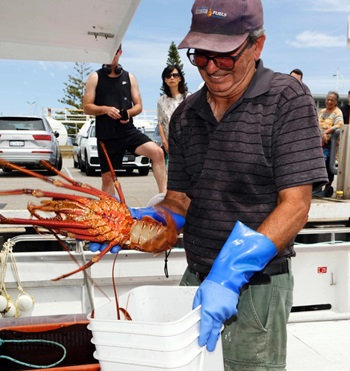 In this part of the world, the small, spiny, clawless western rock lobsters — commonly known in Australia as crayfish — play a starring role on seafood platters. “It’s our busiest time of the year,” said James Paratore, a fisherman who will be among those selling the lobsters from the back of his boat on Monday with his father Joe in Fremantle, near Perth. While trade in the local delicacy picks up over the festive period, the fishing industry has struggled since losing its biggest customer by far: China. Four years ago, exports to the lucrative Chinese market were sealed off by a trade war. Now they are in a cautiously celebratory mood after Beijing confirmed on Friday its trade ban on Australian rock lobsters had officially been lifted. Photos, more, >>CLICK TO READ<< 06:54
In this part of the world, the small, spiny, clawless western rock lobsters — commonly known in Australia as crayfish — play a starring role on seafood platters. “It’s our busiest time of the year,” said James Paratore, a fisherman who will be among those selling the lobsters from the back of his boat on Monday with his father Joe in Fremantle, near Perth. While trade in the local delicacy picks up over the festive period, the fishing industry has struggled since losing its biggest customer by far: China. Four years ago, exports to the lucrative Chinese market were sealed off by a trade war. Now they are in a cautiously celebratory mood after Beijing confirmed on Friday its trade ban on Australian rock lobsters had officially been lifted. Photos, more, >>CLICK TO READ<< 06:54
Australian rock lobster will soon be exported to China again — here’s what it means for the industry and consumers
China’s ban on Australian rock lobsters is expected to be lifted by the end of the year, Prime Minister Anthony Albanese has announced. Rock lobster fishers say China is “by far” their biggest market and the impact on coastal WA communities will be significant. However, it could mean Australians will end up paying more for the prized delicacy once exports resume. Australian rock lobster fishers soon will be able to export their prized catches to China again, after four years out in the cold. The welcome development was announced yesterday following a meeting between Prime Minister Anthony Albanese and Chinese Premier Li Qiang on the sidelines of the ASEAN summit in Vietnam. Exports are expected to resume by the end of the year, in time for Chinese New Year in 2025. Here’s what it means for Australia. Photos, more, >>CLICK TO READ<< 19:15
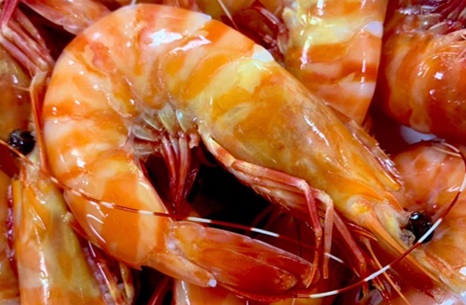
Low export prices prompt seafood industry to push more tiger prawns into Aussie markets
Australians are being urged to eat more wild-caught tiger prawns, as fishers move away from sending their produce overseas. It’s been a slow start to the season in the Gulf of Carpentaria in northern Queensland; catches are down but fishers are also facing challenging international markets amid tough economic conditions. Austral Fisheries is one of the largest commercial fishing companies in Australia. Northern prawn division operations manager Bryan Van Wyck said due to an oversupply on the international market, they could not get the prices they were accustomed to. more, >>CLICK TO READ<< 09:46
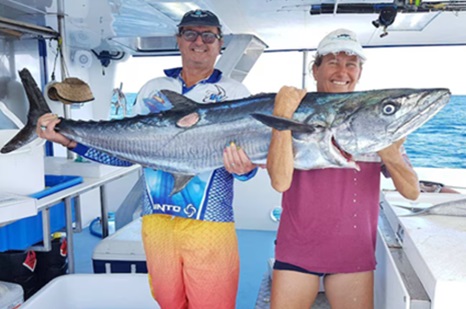
Gulf of Carpentaria fishing couple celebrates ’90 years’ doing a job they still love
Bruce Davey has been fishing commercially in the Gulf of Carpentaria for 50 years and can’t believe how lucky he is. “I came up in 1974 on a little timber prawn trawler that I sailed from Mooloolaba,” he said. “This year, I’m celebrating my 50th consecutive year at sea working hard for my country — and my wonderful wife Juanita is celebrating her 40th year, so that’s 90 years of fishing between the two of us.” 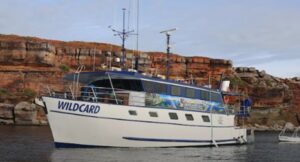 Their boat is called the MV Wildcard and these days there are three generations of Davey’s living onboard, including grandchildren Ellica, aged four, and Finn, aged 2. “This is Ellica’s fourth mackerel season and she’s a great help around the boat,” Mr Davey said. Photos, audio, more, >>CLICK TO READ<< 17:55
Their boat is called the MV Wildcard and these days there are three generations of Davey’s living onboard, including grandchildren Ellica, aged four, and Finn, aged 2. “This is Ellica’s fourth mackerel season and she’s a great help around the boat,” Mr Davey said. Photos, audio, more, >>CLICK TO READ<< 17:55
Mud crabbers of King Ash Bay endure harsh lifestyle, extreme weather to catch sought-after seafood
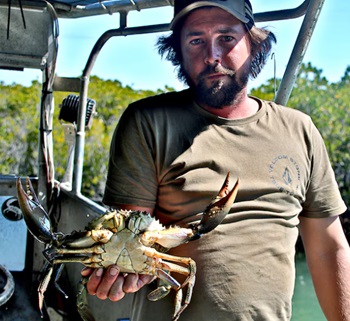 Crocodiles and sharks are just everyday work hazards for Josh Taylor and the other fishermen who battle some of the harshest conditions in Australia to catch one of the nation’s most prized seafoods — mud crabs. Many live in makeshift wooden huts, with no creature comforts, amongst mosquito-infested mangrove swamps in the estuaries around the Gulf of Carpentaria. It may be no surprise then that Mr Taylor is one of just 49 fishers who hold mud crabbing licences in the Northern Territory, and one of just six who drop their pots in the remote King Ash Bay. Despite the hazards, Mr Taylor, who became a commercial mud crabber four years ago, says he enjoys heading out in his boat, catching fish to eat for dinner, and returning to the simple shack he shares with two other fishermen at King Ash Bay. Photos, more, >>CLICK TO READ<< 08:11
Crocodiles and sharks are just everyday work hazards for Josh Taylor and the other fishermen who battle some of the harshest conditions in Australia to catch one of the nation’s most prized seafoods — mud crabs. Many live in makeshift wooden huts, with no creature comforts, amongst mosquito-infested mangrove swamps in the estuaries around the Gulf of Carpentaria. It may be no surprise then that Mr Taylor is one of just 49 fishers who hold mud crabbing licences in the Northern Territory, and one of just six who drop their pots in the remote King Ash Bay. Despite the hazards, Mr Taylor, who became a commercial mud crabber four years ago, says he enjoys heading out in his boat, catching fish to eat for dinner, and returning to the simple shack he shares with two other fishermen at King Ash Bay. Photos, more, >>CLICK TO READ<< 08:11
Littleproud predicts rough seas ahead for Illawarra wind zone under Coalition government
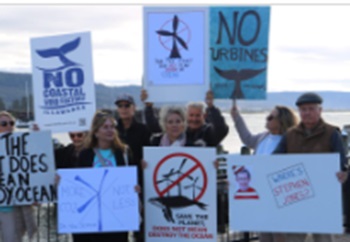 A future Coalition government would not allow a wind energy zone to be developed off the Illawarra coast, Nationals Leader David Littleproud said in Wollongong on Monday (17 June). To the cheers of a group of anti-wind zone protesters at Belmore Basin, Mr Littleproud said the Coalition would stop wind farms from going ahead. “There will be no wind zone, there is a better way to do this. Make no mistake, we’re going to live up to our international commitments, but we’re not going to tear away your economy, your environment and tear up the social cohesion of this great community,” he said. Mr Littleproud and NSW Nationals Senator Ross Cadell visited the region following the weekend declaration by Federal Climate Change and Energy Minister Chris Bowen of a 1022 square km wind zone area, 20 km off the coast. more, >>CLICK TO READ<< 11:53
A future Coalition government would not allow a wind energy zone to be developed off the Illawarra coast, Nationals Leader David Littleproud said in Wollongong on Monday (17 June). To the cheers of a group of anti-wind zone protesters at Belmore Basin, Mr Littleproud said the Coalition would stop wind farms from going ahead. “There will be no wind zone, there is a better way to do this. Make no mistake, we’re going to live up to our international commitments, but we’re not going to tear away your economy, your environment and tear up the social cohesion of this great community,” he said. Mr Littleproud and NSW Nationals Senator Ross Cadell visited the region following the weekend declaration by Federal Climate Change and Energy Minister Chris Bowen of a 1022 square km wind zone area, 20 km off the coast. more, >>CLICK TO READ<< 11:53
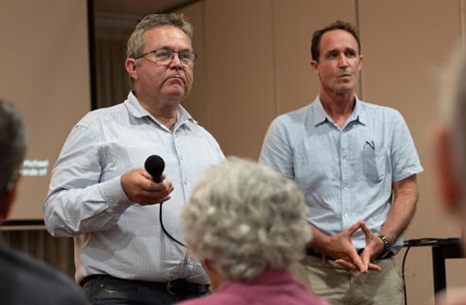
The anti-windfarm ‘odd couple’ joining forces to fight the renewable energy projects Australia’s already failing to build
Deep in coal country, a lifelong environmentalist and one-time Greens candidate is feeling the applause. It’s Thursday night at a Gladstone pub and Steven Nowakowski has won over sceptical locals. His message is a simple one; he believes a wave of new windfarm developments threatens to smash hilltops and turn koala habitat into “industrial zones”. The green movement, he says, are in “la-la land” over windfarms, a comment that draws nods and knowing smiles from the audience. But its only when one local suggests building a new coal-fired power station does the crowd erupt in spontaneous applause. more, >>CLICK TO READ<< 08:59
First Nations advocates resolve to put traditional fishing rights under international spotlight
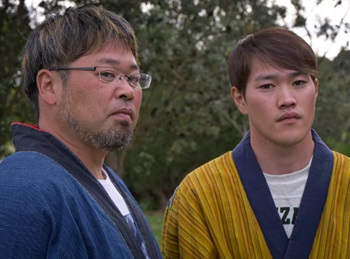 First Nations delegates from Japan, Taiwan, Canada, Alaska, and Australia have met on the lands of Walbunga Yuin people on the NSW far south coast for the International Indigenous Fishing Symposium. Indigenous fishing rights activists in NSW are working with First Nations groups around the world to put a global spotlight on the battle to protect traditional fishing rights and cultural practices. The groups plan to work together to lobby the United Nations. more, >>CLICK TO READ<< 07:56
First Nations delegates from Japan, Taiwan, Canada, Alaska, and Australia have met on the lands of Walbunga Yuin people on the NSW far south coast for the International Indigenous Fishing Symposium. Indigenous fishing rights activists in NSW are working with First Nations groups around the world to put a global spotlight on the battle to protect traditional fishing rights and cultural practices. The groups plan to work together to lobby the United Nations. more, >>CLICK TO READ<< 07:56
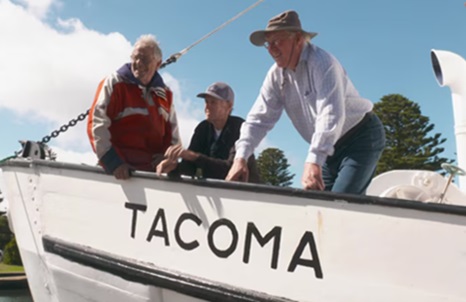
Port Fairy residents reminiscence origins of 1950s pioneering fishing boat, Tacoma
When the grand old wooden fishing boat Tacoma returned home to Port Fairy, its skipper Ross Haldane was transported back 72 years. The 76-year-old grandfather was one of the seven children onboard when the boat left in the early 1950s destined for South Australia to bolster the state’s growing 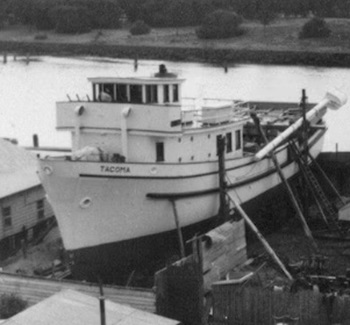 fishing industry. “I remember the boat going into its first big waves — we quickly ran down into the galley and watched the waves from there,” Ross said. Ross and one of the original crew members, 90-year-old Jack Bellamy, made the return trip this year aboard the Tacoma from Port Lincoln to Port Fairy, where it arrived on March 25. Photos, Video, more, >>CLICK TO READ<< 06:30
fishing industry. “I remember the boat going into its first big waves — we quickly ran down into the galley and watched the waves from there,” Ross said. Ross and one of the original crew members, 90-year-old Jack Bellamy, made the return trip this year aboard the Tacoma from Port Lincoln to Port Fairy, where it arrived on March 25. Photos, Video, more, >>CLICK TO READ<< 06:30
Fishermen wary of seismic plans for Bass Strait waters
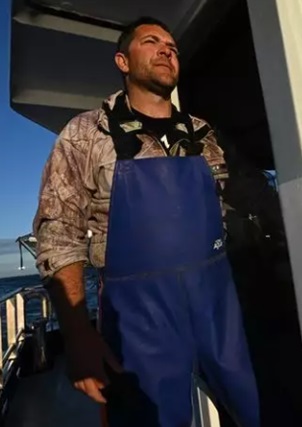 Andrew Smith wants to keep crayfishing long enough to put his children through school. But plans for further seismic testing off his Bass Strait home of King Island have him worried. Energy data company TGS wants to survey for gas across some 4.5 million hectares in the Otway Basin, which are Commonwealth waters between Tasmania and Victoria. Seismic testing has been shown to negatively impact whales as well as other marine life. Tasmanian Seafood Industry Council chief executive Julian Harrington said the testing area was adjacent to rock lobster and giant crab fisheries. He said the waters were a “larvae corridor” for rock lobsters, which have a 15 to 18 month larvae cycle. more, >>click to read<< 07:24
Andrew Smith wants to keep crayfishing long enough to put his children through school. But plans for further seismic testing off his Bass Strait home of King Island have him worried. Energy data company TGS wants to survey for gas across some 4.5 million hectares in the Otway Basin, which are Commonwealth waters between Tasmania and Victoria. Seismic testing has been shown to negatively impact whales as well as other marine life. Tasmanian Seafood Industry Council chief executive Julian Harrington said the testing area was adjacent to rock lobster and giant crab fisheries. He said the waters were a “larvae corridor” for rock lobsters, which have a 15 to 18 month larvae cycle. more, >>click to read<< 07:24
Darwin fisherman Daniel Schoolmeester charged after allegedly holding workers captive on his boat
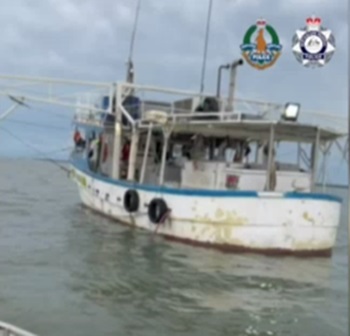 A Darwin man who allegedly lured workers to his boat, forced them into labour and held them captive against their will with minimal food or water, has appeared before court. Daniel Schoolmeester, 47, appeared in the Darwin Local Court on Friday afternoon, charged with deceptive recruitment, causing a person to remain in servitude and forcing labour. It’s alleged he posted deceptive job advertisements on Gumtree and his social media account calling for deckhands and coxswains to work on his fishing boat. Workers allege once on board, Mr Schoolmeester made them work extensive hours without pay, denied them food, water and sleep, and subjected them to cruel and degrading treatment. Video, >>click to read<< 11:36
A Darwin man who allegedly lured workers to his boat, forced them into labour and held them captive against their will with minimal food or water, has appeared before court. Daniel Schoolmeester, 47, appeared in the Darwin Local Court on Friday afternoon, charged with deceptive recruitment, causing a person to remain in servitude and forcing labour. It’s alleged he posted deceptive job advertisements on Gumtree and his social media account calling for deckhands and coxswains to work on his fishing boat. Workers allege once on board, Mr Schoolmeester made them work extensive hours without pay, denied them food, water and sleep, and subjected them to cruel and degrading treatment. Video, >>click to read<< 11:36
‘Saved a big catastrophe’: Coast Guard and lifesavers come to aid of fishing trawler
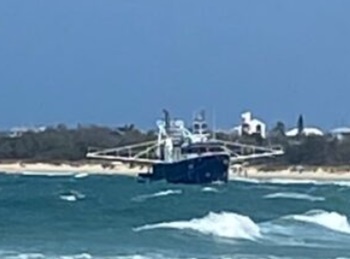 Holiday beachgoers were surprised to see a 20m fishing trawler stuck in the shallows at Mooloolaba Beach on Saturday. Coast Guard and lifesavers got to the boat just in time and pulled it back out to sea. Coast Guard Mooloolaba crew skipper Bill Asher said they were first notified about the vessel by the crew of a nearby charter boat. “They said the trawler was drifting towards to the beach,” he said. “We tried to call the vessel but we couldn’t raise them and we saw on our cameras that they were only 150m off the beach.” photos, more, >>click to read<< 08:16
Holiday beachgoers were surprised to see a 20m fishing trawler stuck in the shallows at Mooloolaba Beach on Saturday. Coast Guard and lifesavers got to the boat just in time and pulled it back out to sea. Coast Guard Mooloolaba crew skipper Bill Asher said they were first notified about the vessel by the crew of a nearby charter boat. “They said the trawler was drifting towards to the beach,” he said. “We tried to call the vessel but we couldn’t raise them and we saw on our cameras that they were only 150m off the beach.” photos, more, >>click to read<< 08:16
Australia: Anti-offshore wind farm fishing group is chaired by a former Liberal MP
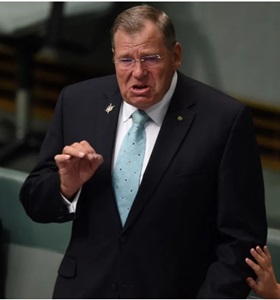 A fishing industry group that has become one of the most vocal critics of offshore wind farm plans is chaired by a former Liberal politician who claims that the turbines threaten Australia’s national security by providing places for foreign submarines to hide. Offshore wind farms proposed for near the Illawarra region andOffshore wind farms Port Stephens have become a hot-button issue with the emergence of anti-wind farm organising. One of the major existing groups that have come out in opposition to the plans is the Australian Fishing Trade Association (AFTA), Fishing groups have opposed the offshore wind farm plans out of fear that the projects would hurt both commercial and recreational fishers. But AFTA was not one of the groups that made submissions during the consultation process between February and April this year. more, >>click to read<< 08:29
A fishing industry group that has become one of the most vocal critics of offshore wind farm plans is chaired by a former Liberal politician who claims that the turbines threaten Australia’s national security by providing places for foreign submarines to hide. Offshore wind farms proposed for near the Illawarra region andOffshore wind farms Port Stephens have become a hot-button issue with the emergence of anti-wind farm organising. One of the major existing groups that have come out in opposition to the plans is the Australian Fishing Trade Association (AFTA), Fishing groups have opposed the offshore wind farm plans out of fear that the projects would hurt both commercial and recreational fishers. But AFTA was not one of the groups that made submissions during the consultation process between February and April this year. more, >>click to read<< 08:29

Australia: Coastal wind farms – This Sunday, the people say ‘no’ again
When the first coastal wind farms were announced by Energy Minister Chris Bowen, I thought I was dreaming. Australia has some of the best beaches in the world. People come to this country to see its unspoilt natural beauty. Despite a 42 per cent decline following the lockdowns, tourism remains Australia’s 14th-largest export industry. Along with education, it is one of the most sustainable industries that contributes to our standard of living. Nobody wants to come to Australia to see rotting wind turbines at our beaches. They can visit their own failed renewable energy white elephants at home. To make matters worse, our energy minister is pitching his vibe to elite activists while refusing to listen to ordinary Australians. Today they will gather in the surf near Port Stephens. The protest is called Paddle Out. >>click to read<< 10:21
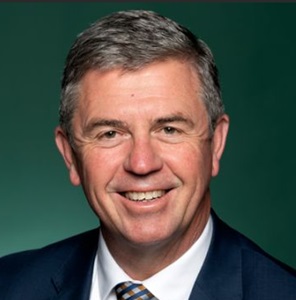
Gillespie calls for Labor to abandon Offshore Wind Farm
Federal Nationals Member for Lyne Dr David Gillespie has addressed Parliament, speaking out against the Offshore Wind farm proposed off the coast of his electorate. In July the federal government declared a wind farm zone covering more than 1800 square kilometres from Swansea in the south to Port Stephens in the north Dr Gillespie recently attended and addressed an anti-wind farm rally in Port Stephens attended by nearly 2,000 people. “These trillion dollar-plus energy plans by Labor, Greens and Teal Independents is something we simply cannot afford,” Dr Gillespie told Parliament “I can assure all of the people who have expressed their concerns about this project that I am absolutely opposed to this development which will have a significant negative impact on our region and the people of Australia. Feasibility studies and the eventual project will detrimentally impact whale and dolphin acoustics, migration and pod behaviour, and marine bird life will suffer like it does from land-based wind farms. Dr Gillespie said there would be enormous financial cost on the $1bn local commercial fishing industry, commercial freighters, blue water and the tourism economy. >>click to read<< 20:52
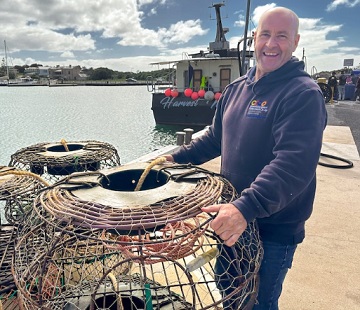
Lobster season underway, but South Australian fishers still missing out on Chinese trade
Lobster fishers in South Australia’s southern zone are heading out today to set their pots for the start of the season. After a two-year trial, the season’s September 1 start date has become permanent in the hope it will help get lobsters onto the plates of those celebrating the Chinese Mid-Autumn Festival. Robe lobster fisher Paul Regnier supports the change. “It has been a real bonus for us,” he said. But China is still not allowing Mr Regnier’s catch into the country — officially, at least. China’s 2020 ban on Australian lobsters sent prices crashing and exporters were forced to find new markets for the crustaceans. >>click to read<< 10:34
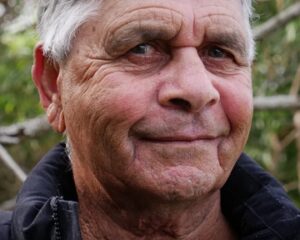
Forty years since Narooma lobster case that could have transformed Indigenous fishing rights in NSW
Norm Patten’s eyes light up when he talks about lobster season. “When you see that yellow wattle come out mate, you know the lobsters are travelling up the coast,” Mr Patten said. The eastern rock lobster can be found along the continental shelf off Australia’s south-eastern coast. Mr Patten’s mum was a Monaro-Gunai woman and he grew up in Victoria’s East Gippsland region and in Narooma on the NSW far south coast. He and his siblings were taught by their stepfather how to spot lobsters’ horns poking out of the seaweed at low tide. By the time Mr Patten was an adult, a commercial rock lobster industry was established on the far south coast and strict catch limits were introduced for recreational fishers. >>click to read<< 07:54
South Australia rejects proposed Southern Ocean offshore wind energy zone over lobster industry concern
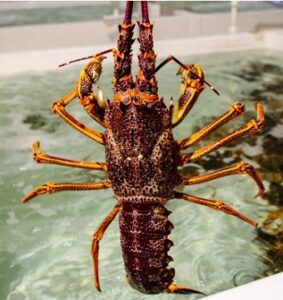 One state is bucking a push for more wind farms in Australia due to fears the gigantic renewable energy generators could damage vulnerable ocean wildlife and put hundreds of fishermen out of work. South Australia has officially notified the federal government it does not support a proposed Southern Ocean offshore wind farm zone stretching from Warrnambool in Victoria to Port MacDonnell in the state’s southeast Limestone Coast region. Primary Industries Minister Clare Scriven said the construction of massive turbines could damage the state’s $187.5m rock lobster industry, which generates more than 1000 full time jobs in the area. >>click to read<< 11:17
One state is bucking a push for more wind farms in Australia due to fears the gigantic renewable energy generators could damage vulnerable ocean wildlife and put hundreds of fishermen out of work. South Australia has officially notified the federal government it does not support a proposed Southern Ocean offshore wind farm zone stretching from Warrnambool in Victoria to Port MacDonnell in the state’s southeast Limestone Coast region. Primary Industries Minister Clare Scriven said the construction of massive turbines could damage the state’s $187.5m rock lobster industry, which generates more than 1000 full time jobs in the area. >>click to read<< 11:17
Limestone Coast community fears it has a lot to lose if offshore wind zone goes ahead in Southern Ocean
 Australia’s Southern Ocean has some of the best wind resources in the world and is set to play a prominent part in the nation’s energy future. But in a small town on South Australia’s Limestone Coast, opposition to the development of offshore wind farms is fierce. Chris Carrison is an abalone diver and chair of Southern Coast Ocean Care, a group of Port Macdonnell residents against offshore wind. “Particularly from the cray fishermen and the future of their industry, but just the general public that they’re going to look out of their front yard and see a wind tower in the future.” Mr Carrison said locals were concerned the development could have a devastating effect on the local lobster fishing industry and the environment. >click to read< 08:02
Australia’s Southern Ocean has some of the best wind resources in the world and is set to play a prominent part in the nation’s energy future. But in a small town on South Australia’s Limestone Coast, opposition to the development of offshore wind farms is fierce. Chris Carrison is an abalone diver and chair of Southern Coast Ocean Care, a group of Port Macdonnell residents against offshore wind. “Particularly from the cray fishermen and the future of their industry, but just the general public that they’re going to look out of their front yard and see a wind tower in the future.” Mr Carrison said locals were concerned the development could have a devastating effect on the local lobster fishing industry and the environment. >click to read< 08:02
This Fisherman’s Catch of the Day? A Kangaroo Stranded in the Ocean.
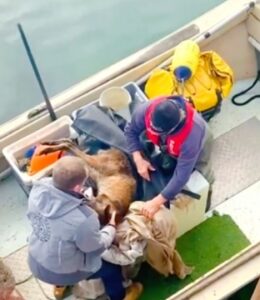 What’s the last thing you’d expect to reel in while out on a fishing boat? A kangaroo! But that’s precisely what one fisherman encountered while out on his vessel. Kangala Wildlife Rescue received a call from said fisherman, who was heading back to shore to deliver the exhausted animal into their care. The trouble was, the kangaroo was beginning to wake up… and you certainly don’t want an angry kangaroo bouncing around your boat! Rescuers had to act quickly to sedate the roo, and then transport it back to their wildlife center to evaluate its health. Photos, >click to read< 09:44
What’s the last thing you’d expect to reel in while out on a fishing boat? A kangaroo! But that’s precisely what one fisherman encountered while out on his vessel. Kangala Wildlife Rescue received a call from said fisherman, who was heading back to shore to deliver the exhausted animal into their care. The trouble was, the kangaroo was beginning to wake up… and you certainly don’t want an angry kangaroo bouncing around your boat! Rescuers had to act quickly to sedate the roo, and then transport it back to their wildlife center to evaluate its health. Photos, >click to read< 09:44






